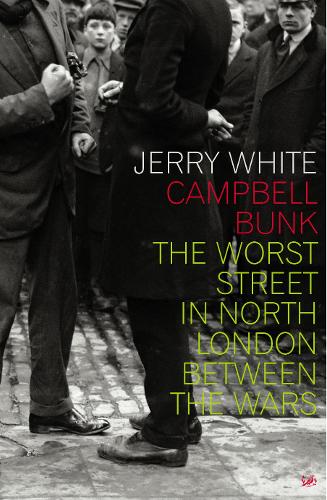
Campbell Bunk: The Worst Street in North London Between the Wars
(Paperback)
Publishing Details
Campbell Bunk: The Worst Street in North London Between the Wars
By (Author) Jerry White
Vintage
Pimlico
15th October 2003
2nd October 2003
United Kingdom
Classifications
Professional and Scholarly
Non Fiction
Local history
942.188083
Physical Properties
Paperback
352
Width 153mm, Height 234mm, Spine 26mm
442g
Description
From the 1880s to World War II, Campbell Road, Finsbury Park (known as Campbell Bunk), had a notorious reputation for violence, for breeding thieves and prostitutes, and for an enthusiastic disregard for law and order. It was the object of reform by church, magistrates, local authorities and scientists, who left many traces of their attempts to improve what became known as "the worse street in North London". In all that record, the voice of Campbell Bunk itself was silent. Campbell Road was eventually cleared as a slum in the 1950s. This title provides insight into the realities of life in a "slum" community, showing how it changed over a 90-year period. The author uses extensive oral history to describe in detail the years between the wars, revealing complex lessons betweem the new world opening up (especially for young women) in Campbell Bunk and the street's traditional culture of economic individualism, crime, street theatre and domestic violence.
Reviews
A more lucid and penetrating analysis of an urban slum would be hard to imagine... A most subtle and powerful evocation of life and labour -- Jeremy Seabrook * Guardian *
A brilliant and searching study... I do not believe that even Henry Mayhew could have done greater or more sympathetic justice to the memory of 'Campbell Bunk' and its inhabitants -- Victor Neuberg * British Book News *
This is an enthralling book which comes as near as possible to understanding an urban community it its environment. It deserves to become a classic * Planning Perspectives *
Author Bio
Professor Jerry White teaches London history at Birkbeck, University of London. He is the author of an acclaimed trilogy of London from the eighteenth to the twentieth centuries. His most recent book is Zeppelin Nights, a social history of London during the First World War. He was awarded the honorary degree of Doctor of Literature by the University of London in 2005 and is a Fellow of the Royal Historical Society.
